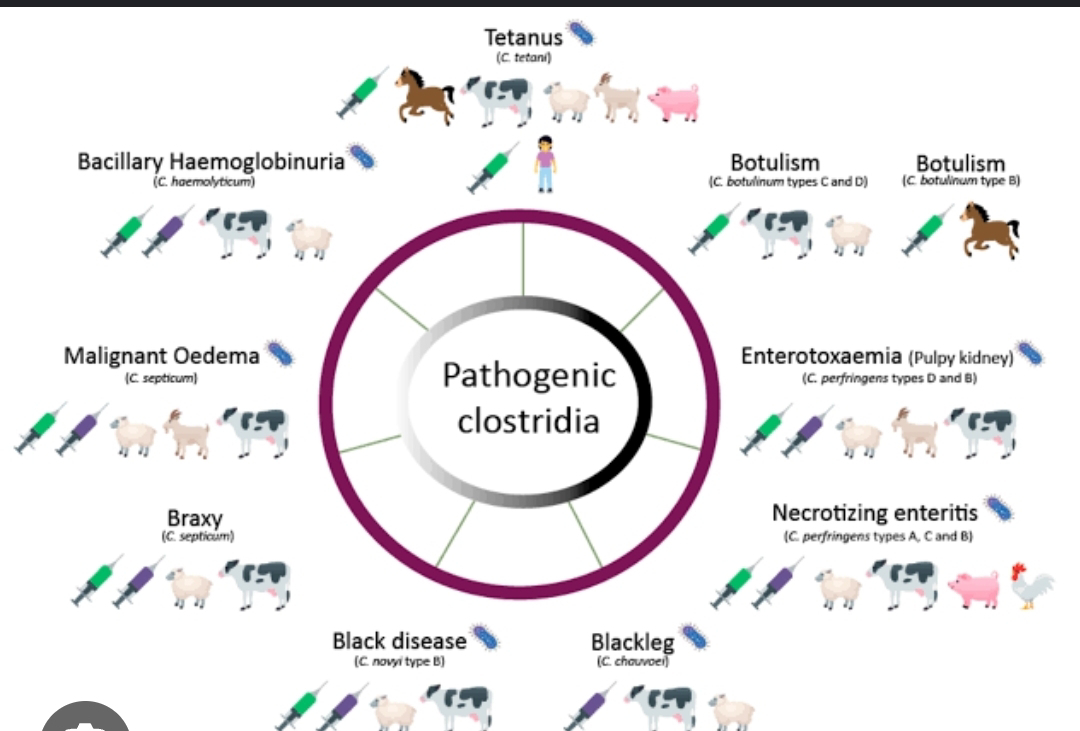let's talk about clostridial disease, its causes, control measures, and vaccine schedules for dairy farms.
Clostridial diseases are caused by bacteria of the Clostridium genus, which are commonly found in the environment. These bacteria can produce toxins that can cause severe illness and even death in cattle. Here are a few important facts about clostridial diseases:
1. Causes: Clostridial diseases can occur when cattle are exposed to spores of Clostridium bacteria through contaminated feed, water, or soil. These spores can survive for long periods in the environment and can be ingested by cattle during grazing or feeding.
2. Types of Clostridial Diseases: Some common clostridial diseases in dairy cattle include blackleg, malignant edema, tetanus, and enterotoxemia (also known as overeating disease).
3. Symptoms: The symptoms of clostridial diseases can vary depending on the specific disease but may include fever, lameness, swelling, muscle stiffness, diarrhea, and sudden death.
To control clostridial diseases on a dairy farm, farmers often follow these measures:
1. Vaccination: Vaccination is a crucial component of clostridial disease control. There are various vaccines available that provide protection against different clostridial diseases. The specific vaccine schedule may vary depending on the farm's location and the veterinarian's recommendations. Generally, calves receive their initial vaccines at a young age, followed by booster shots at regular intervals.
2. Hygiene and Sanitation: Maintaining proper hygiene and sanitation practices on the farm can help reduce the risk of clostridial disease. This includes cleaning and disinfecting feeders, water troughs, and other equipment regularly.
3. Pasture Management: Proper pasture management, such as avoiding overgrazing and removing any carcasses promptly, can help minimize exposure to clostridial spores.
4. Good Nutrition: Providing a balanced diet and avoiding sudden changes in feed can help support the overall health and immune system of the cattle, reducing their susceptibility to clostridial diseases.
It's important for dairy farmers to work closely with their veterinarians to develop a comprehensive clostridial disease control program tailored to their specific farm's needs. The veterinarian can provide guidance on the appropriate vaccines, vaccination schedules, and other preventive measures.
Remember, prevention is key when it comes to clostridial diseases. By implementing proper vaccination and management practices, dairy farmers can help protect their cattle .

Comments